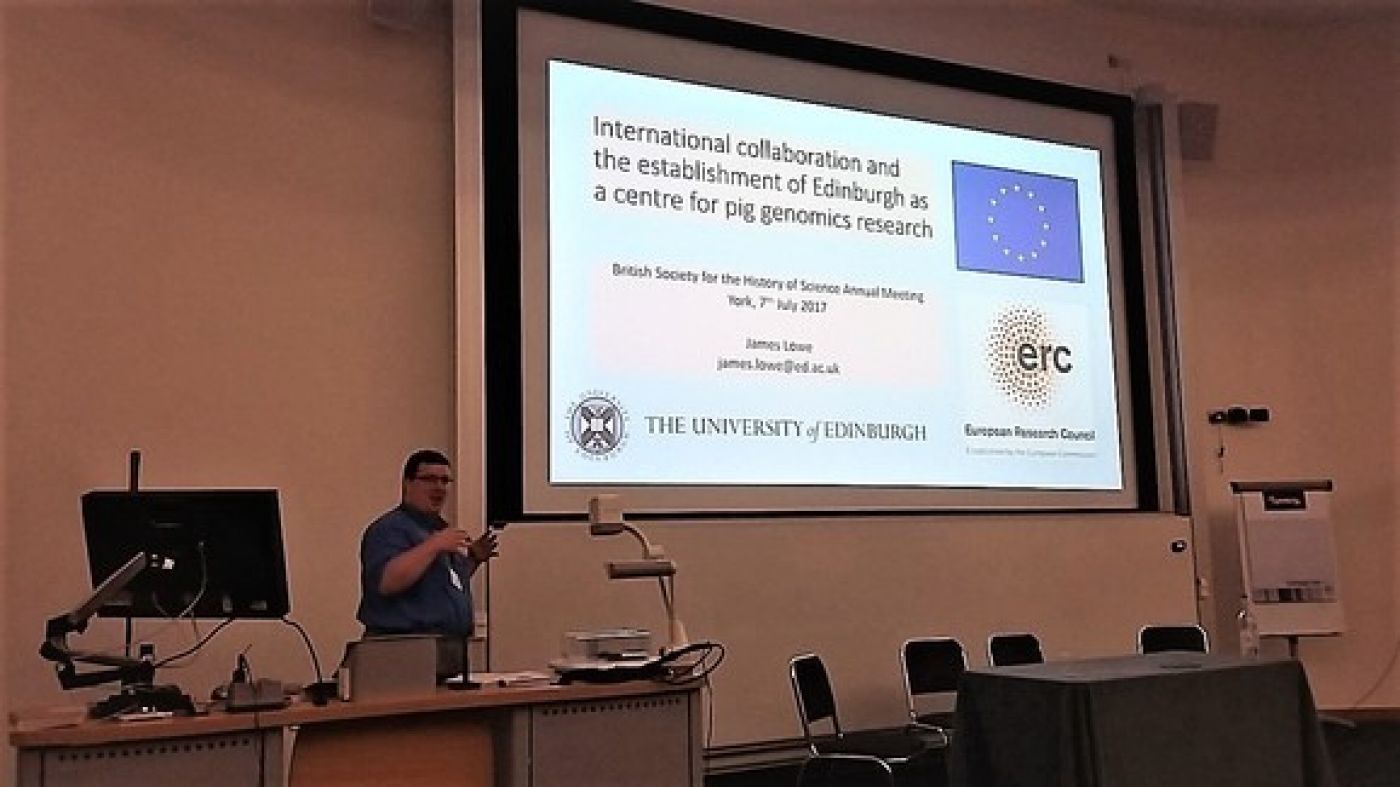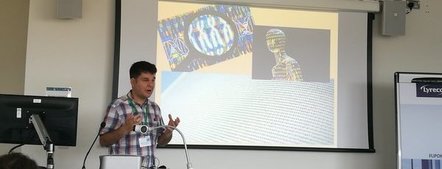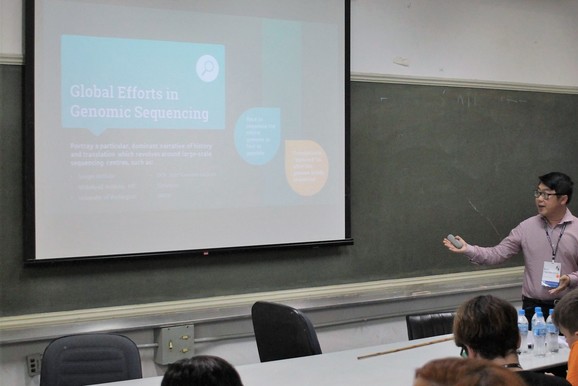TRANSGENE on tour
Media
Image

Media description
James Lowe at BSHSimage credit: Towards Dolly (Twitter: @towardsdolly)
Blog content
Amongst the sizeable Edinburgh contingent at the annual British Society for the History of Science conference, this year held in York, were representatives from the TRANSGENE project team.
Miguel García-Sancho presented the progress on the yeast strand of the project in a session dedicated to yeast biology, detailing the role of the European Commission’s attempts at ‘capacity-building’ in biotechnology in the advent of yeast genome sequencing. In a separate session, he detailed the ‘historical cartography’ of the human genome project, presenting an account of the Human Genome Mapping Project in the UK and the shifts in disciplinary community involvement and funding that took place that led to the international collaboration operating under the banner of the ‘Human Genome Project’.

In a session concentrating on genetics in Edinburgh, James Lowe followed on from Dmitriy Myelinikov’s talk discussing the funding crisis and strategic reorientation of the Roslin Institute (and predecessors organisations) in the 1980s. Lowe identified livestock genetics as a stream of research that was able to persist, despite these challenges, through positioning itself in international networks of pig genetics and genomics research. He stressed ephemerality as a way of understanding some of the challenges facing researchers in this period, the lack of support for maintenance of resources developed by researchers providing them with a challenge as well as presenting problems for historians of science.
…at the International Society for the History, Philosophy and Social Studies of Biology conference

Mark Wong presented his work at the ISHPSSB Conference in Sau Paulo, Brazil in a diverse-format session entitled “Organisms and Us”, organised by Prof. Rachel Ankney (University of Adelaide). He presented an innovative method our project had developed using computational technique and linked data to investigate the history of genomics and the network of institutions involved, particularly in the human, pig and yeast genomes. It was a useful discussion on the opportunities, as well as challenges, that Social Network Analysis (SNA) and data science can offer to this field. Wong explained plans of linking 40 million records that we have now collected and presented some initial network visualisations. He discussed how SNA can help uncover changes in the practices and visions of sequencing and translation of genomic information. There was much interest from the audience after the presentation in learning about how quantitative network data can be used to inform historical and archival work.
James Lowe and Mark Wong, July 2017
